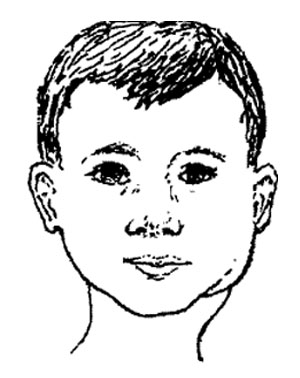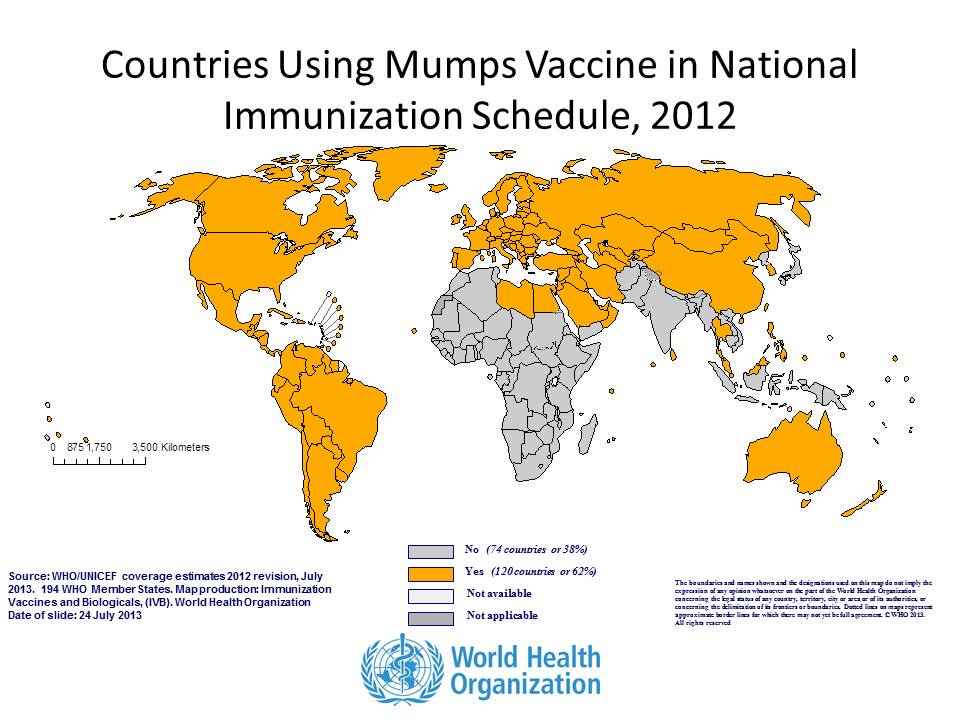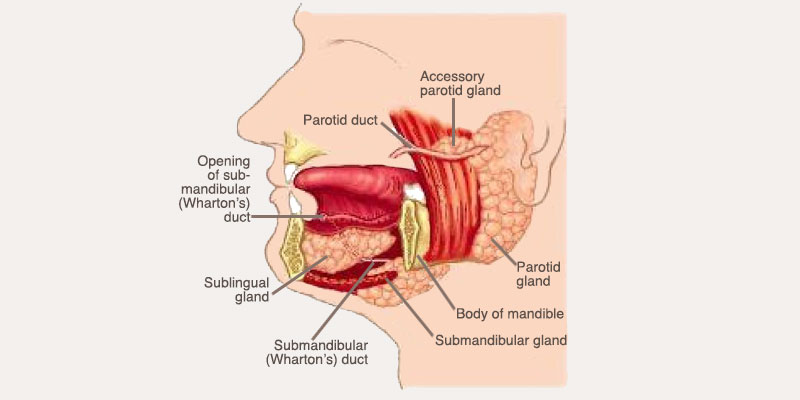Mumps
What is Mumps?
Mumps is an infection caused by a type of virus called a paramyxovirus. It is very contagious and spread in saliva, the same way as a cold or flu. This means it can be caught from an infected person coughing, sneezing, etc. It can also be caught from touching infected objects -for example, door handles.
Mumps infection is less common since the introduction of the measles, mumps and rubella (MMR) vaccine.
It is very unusual for children under one year to have mumps.
What is the usual symptoms of mumps?
- Swelling and pain of one or both parotid glands are the usual main symptoms. The parotid glands are the main salivary glands. They are just below the ears and you cannot normally see or feel them. The salivary glands make saliva which drain into the mouth.
- The mouth may feel dry.
- Fever (high temperature), headache, feeling tired and being off mood may develop for a few days. These symptoms may occur before you develop swelling on your parotid gland.
- Mild abdominal (tummy) pain may occur.
The swelling of the parotid glands usually lasts for 4-8 days. Mumps is normally a mild illness, but complications sometimes occur. This is why immunisation is important.
There may be no symptoms, or only very minor ones. It is thought that about 3 to 10 people who contract the mumps virus have no symptoms. Rarely, complications alone occur without the usual symptoms occurring first.
The immune system makes antibodies during the infection. These clear the virus and the provide lifelong immunity. It is therefore very rare to have more than one episode of mumps.
What are risk factors for contracting mumps?
- Failure to be immunised completely (two separate doses) with exposure to those with mumps
- Age: The highest risk of contracting mumps is to children between 2-12 years of age
- Season: epidemics of mumps were most likely during the winter/spring seasons.
- Travel to high-risk regions of the world: Africa, general Indian subcontinent region, and Southeast Asia. These areas have a very low rate of vaccination.
- Weakening immune system: either due to diseases (for example, HIV/Aids, cancer) or medication (oral steroid use for more than two weeks, chemotherapy)
What are the possible complications of mumps?
The outlook for young children with mumps is very good. Teenagers and adults are more likely to develop complications, which may include one (or more) of the following:
- The testes (testicles) are sometimes affected. One tesis may become inflamed, swollen, and painful for about a week. This is uncommon in young children. However, about 1 in 4 males who get mumps over the age of 12 years will develop a painful swollen testis. Occasionally, both testes are affected. In very rare cases this may cause infertility.
- Brain inflammation (encephalitis or meningitis) is an uncommon complication. It typically causes drowsiness, headache, stiff neck, wanting to keep out of the light and vomiting. Although alarming, meningitis caused by the mumps virus usually clears without any treatment after a few days, without any long-term problems.
- Hearing loss can sometimes occur in people with mumps. This is usually only transient and usually improves with time. Very rarely, mumps can cause permanent deafness.
- Inflammation of the pancreas, heart, and other organs are rare complications.
- If you develop mumps in the first 12 weeks of pregnancy, it may increase the risk of miscarriage. (However, the mumps virus is not thought to cause malformations or defects in an unborn baby)
How is mumps diagnosed?
Mumps is most commonly diagnosed by your symptoms and the type of glands that are enlarged in your body. However, some people have a swab taken from their mouth to obtain some saliva. This is sent to the laboratory to confirm the diagnosis.

What is the treatment for mumps?
There is no medicine that kills the mumps virus. For most people, mumps improves over a week with no long-term problems.
Treatment aims to erase symptoms until the body’s immune system clears the virus:
- You do not usually need any treatment if your symptoms are mild.
- Paracetamol or ibuprofen can ease fever and pain.
- Aspirin should not be used in children with viral illnesses because its use in such cases has been associated with the development of Reye syndrome, which can lead to liver failure and death.
- Serve a soft, bland diet that does not requiere a lot of chewing and encourage your child to drink plenty of fluids. Avoid serving tart or acidic fruit juices (like orange juice, grapefruit juice, or lemonade) that make parotid pain worse. Water, decaffeinated soft drinks, and tea are better tolerated.
- A warm flannel held against a painful parotid gland can be soothing.
- A child with mumps doesn’t need to stay in bed, but may play quietly.
When to Call the Doctor?
Because mumps can also involve the brain and its membranes, call the doctor immediately if your child has any of these symptoms: stiff neck, convulsions (seizures), extreme drowsiness, severe headache, or changes of consciousness. Watch for abdominal pain that can mean involvement of the pancreas in either boys or girls or involvement of the ovaries in girls. In boys, watch for high fever with pain and swelling of the testicles.
Should people with mumps keep away from others?
Yes. Mumps is very infectious. It takes 14-25 days to develop symptoms after being infected. Affected people are infectious from about six days before, until above five days after, a parotid gland begin to swell.
Children immunised against mumps are unlikely to catch mumps. However, immunisation is not 100% effective. Also, some adults may not be immune and some children may have a poor immune system. So, people with mumps should stay off school, nursery, college or work and avoid other people as much as possible. This is as soon as mumps is suspected and for five days from the onset of parotid gland swelling.
Can mumps be prevented? Is there a vaccine for mumps?
The Centers for Disease Control and Prevention (CDC) recommends a combination vaccine (MMR) to children at 12 to 15 months of age with a booster dose at 4 to 6 years of age. During periods of possible epidemics, the booster dose may be administered after a minimum of 28 days following the initial vaccination. The MMR vaccination is designed to prevent measles, mumps, and rubella (German measles).
More common side effects of the MMR vaccine include: stinging/ burning at the injection site, mild temperature, and mild skin rash. The temperature and skin rash most commonly develop five to 12 days post-vaccination. Some recipients of the vaccine will note a mild enlargement and tenderness of local (for example, neck) lymph nodes. It should be noted that the MMR vaccine is designed to prevent. In extremely rare situations, more severe reactions affecting the nervous system, gastrointestinal system, and digestive organs, the skin, and others may occur.
A very small population should not receive MMR vaccine. These include those with a compromised immune system (HIV/AIDS, cancer, those receiving more than two continuous weeks of steroids) or who are allergic to any component of the vaccine, including gelatine or neomycin. MMR vaccines are very unlikely to produce a severe reaction to those who are egg white allergic. Daily uses of inhaled steroids (such as those used to control certain pulmonary diseases such as asthma, COPD, etc.) in not a contraindication to the MMR vaccine. patients with a mild illness (for example, the common cold) may safely receive the MMR vaccine. Conception should be avoided until at least 28 days following vaccination.
Mumps Facts
- Mumps is a highly contagious viral infection with an incubation period of 14-18 days from exposure to onset of symptoms. The duration of the disease is approximately 10 days.
- The initial symptoms of mumps infection are nonspecific (low-grade fever, malaise, headache, muscle aches, and loss of appetite). The classic finding of parotid gland tenderness and swelling generally develops the third day of illness. The diagnosis is generally made without the need for laboratory test.
- Serious complications of mumps include meningitis, encephalitis, deafness and orchitis.
- The MMR vaccine provides 80% effective immunity against mumps following a two-dosage schedule (12-15 months with a booster at 4-6 years of age).
- No specific therapy exists for mumps. Warm cold packs for the parotid gland tenderness and swelling is helpful. Pain relievers (acetaminophen [Tylenol] and ibuprofen [Advil]) are also helpful


